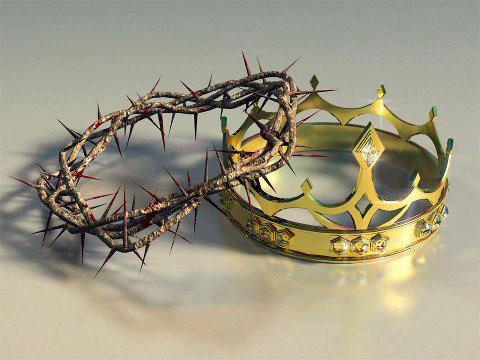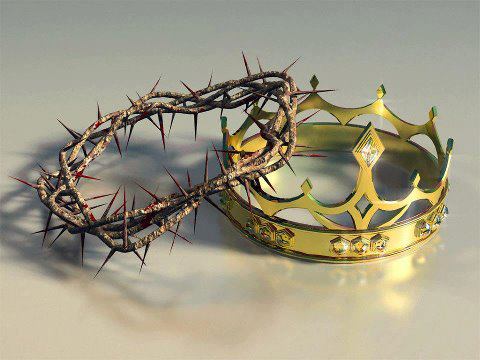What was Adam’s task in the garden (see Genesis 1:26-28; 2:15-17)? Adam’s purpose was not only to stay away from the Tree of Knowledge of Good and Evil. Man’s purpose was (and is) to have dominion over creation.
By sin, Adam failed in that task, but the dominion mandate has not been rescinded. With the “sweat of his brow,” man must exercise dominion (notice the parallel between Genesis 2:15 and 3:17-19. The work remains, but it is with much difficulty). The covenant peoples, the Israelites first, and now, in this age, those in Christ, have been great culture-builders. Taking the command to heart, great civilizations have arisen from within Israel and Christendom. Seeing what great accomplishments of dominion has brought while under sin, it is an even more amazing to contemplate what may have been accomplished had sin not entered.
But praise be to God, what the first Adam failed to do, the Second Adam does. Christ, the Second Adam, completely fulfills what was lacking in the first; Christ is the king that Adam refused to be.
“25 For he must reign until he has put all his enemies under his feet.” 1 Corinthians 15:25 (ESV)
“Must reign” is present tense, active mood, indicating not a future reign only, but a present and active reign. It isn’t spiritual only, or only “in our hearts.” Christ is king today, and always has been. Every human government and ruler is subject and answerable to Him. Because of the resurrection, Christ reigns now. When those who are “in Christ” build cultures, they do their work as co-regents with Christ (2 Timothy 2:12, Revelation 20:4).
The resurrection provides the logic for the kingship of Jesus: Jesus is the first-fruit of those risen from the dead (1 Corinthians 15:20). Verses 21 and 22 indicates that Jesus, the Second Adam brings life where Adam brought death. Jesus completes Adam’s mission, the dominion (cultural) mandate. This is the meaning of His reign–to do what Adam did not do.
Every king and ruler, every government, faces death. History proves that every ruler is someday a footnote to history; and this holds true of empires as well. Mortality swallows them all. Now the greatest threat any government can use against its enemies and its people, is the same weapon that will destroy themselves: death. Beyond physical death, man can do nothing (Matthew 10:28). By destroying the power of death, both physical and eternal (1 Corinthians 15:54-57), Jesus is firmly established as the “King of kings, and Lord of lords” (Revelation 17:14). There is nothing that the rulers of this world, or kings of the earth, can hold against a Christ.
So where does this leave the Christian, the one who is “in Christ?” Where He reigns, we reign.[i]
“The gates of hell” [Matthew 16:18] cannot prevail against an advancing church. Satan is in retreat, not the people of God. Rather than giving up cultural ground to the enemy, which has been the refrain among Christians at least since Darby and Scofield, the church is to take cultural ground, creating and defining it. The much-maligned (by Christians and pagans alike) Christendom, when Christian thought and God’s Law prevailed, was the church’s greatest era.
[i] Consider the passages which speak of being “in Christ” or “in Him” (referring to Christ):
Jn 1:4; 6:56; 15:5; Ac 10:43; Ro 3:24; 6:11, 23; 8:2, 39; 12:5; 16:3, 7; 1 Co 1:2, 5, 30; 15:22; 2 Co 1:19, 20; 2:14; 5:17, 19, 21; 13:4; Ga 1:22; 2:4, 17; 3:14, 26, 28; 5:6; Eph 1:3, 4, 7, 9, 10, 11, 13, 20; 2:6, 7, 10, 13, 22; 3:6, 11, 12, 21; 4:21, 32; Php 1:1; 2:1, 5; 3:3, 9, 14; 4:7, 19; Col 1:2, 17, 19, 24; 2:6, 7, 9, 10, 11, 15; 1 Th 4:16; 2 Th 1:12; 2 Ti 1:1, 9; 2:10; 3:12; Phm 8; Heb 3:14; 1 Pe 3:16; 5:10, 14; 1 Jn 2:5, 6, 27, 28; 3:6, 17, 24; 4:13, 15, 16; 5:20


